This is the implementation of add in Binary Search Tree from BST Add
private IntTreeNode add(IntTreeNode root, int value) {
if (root == null) {
root = new IntTreeNode(value);
} else if (value <= root.data) {
root.left = add(root.left, value);
} else {
root.right = add(root.right, value);
}
return root;
}
I understand why this runs in O(log n). Here's how I analyze it. We have a tree size of n. How many cuts of 2, or half cut, will reduce this tree down to a size of 1. So we have the expression n(1/2)^x = 1 where the 1/2 represents each half cut. Solving this for x, we have log2(x) so the logn comes from search.
Here is a lecture slide from Heap that discusses runtime for an unbalanced binary search.

My question is even if the binary search tree is unbalanced, wouldn't the same strategy work for analyzing the runtime of add? How many cuts you have to make. Wouldn't the runtime still be O(log n), not O(n)? If so, can someone show the math of why it would be O(n)?